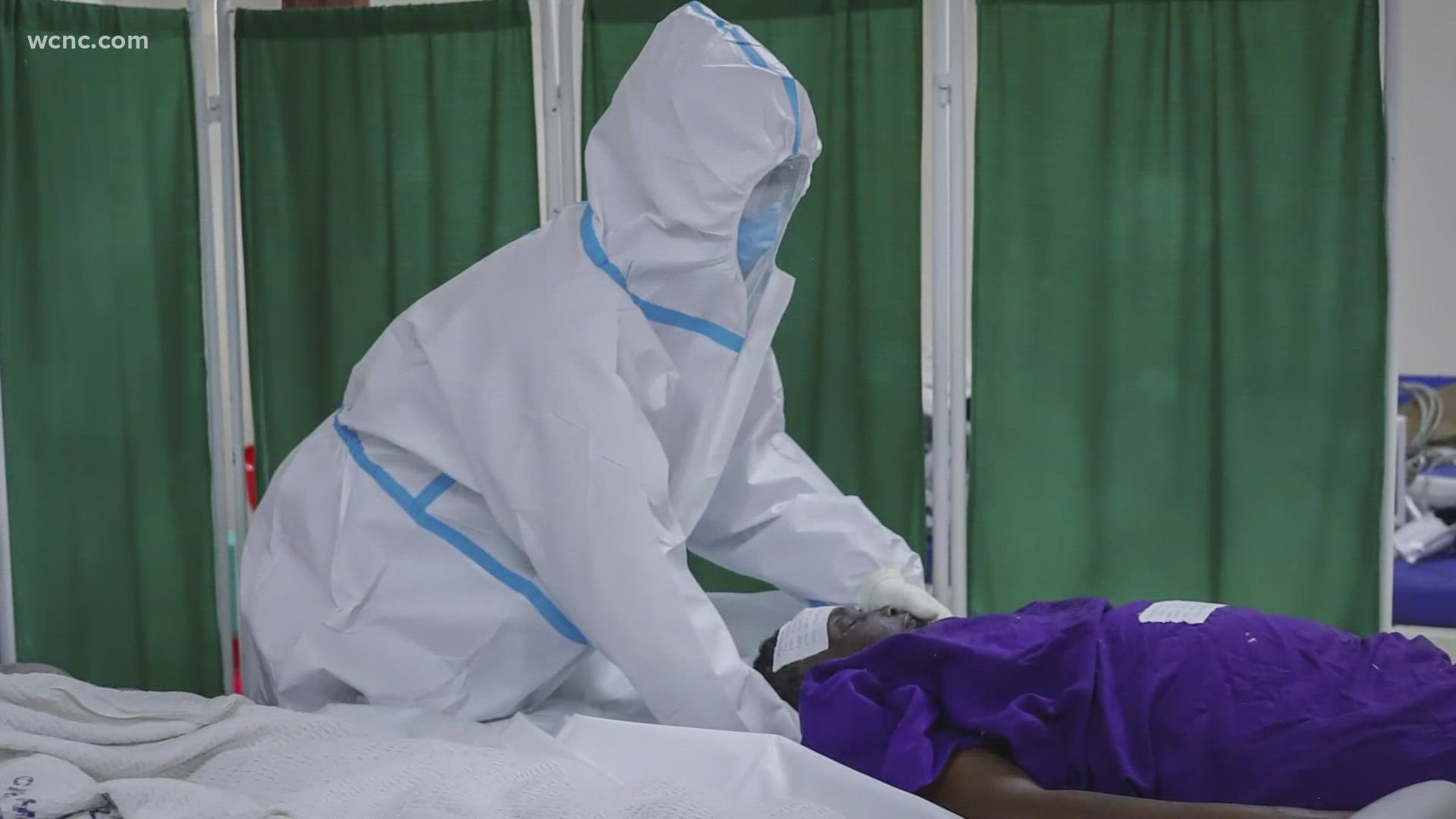CHARLOTTE, N.C. — The World Health Organization named a new variant of COVID-19 called omicron as a variant of concern. Scientists say it was first reported in South Africa on November 9th.
Today, the US banned travel from eight African countries as scientists scramble to learn more about the highly mutated variant that could be more transmissible.
“Could this also lead to more severe disease? Well, really this is all still unknown at this time," said Dr. Paulo Verardi, who studies Virology and Vaccinology at the University of Connecticut. "The only thing we know is that there might be a risk of the level of transmission and potentially a risk of reinfection. But we really don’t know much else at this time.”
Dr. Verardi suggests it could be weeks before scientists really understand how the new variant behaves. One concern scientists do have is that it spreads quickly. The variant has already been reported in Europe and Africa, and health leaders believe it may already be in the US.
“When you have a virus like this, it almost invariably is ultimately [going to] go essentially all over," said Dr. Anthony Fauci, director of the National Institute of Allergy and Infectious Diseases. "The issue of blocking travel from a given country is to just give us time to assess it better. That's the reason for doing that.”
Dr. Fauci says it’s too early to panic because not enough is known about the variant. One possibility scientists are looking at is to see if the variant is more resistant to vaccines.
“It is conceivable that it may be diminishing a little bit [of] the protection," he said. "But the vaccines that we use may very well be able to contain this and then it won't be as serious as some people are summarizing it might be. A lot of unknowns, which is the reason why we are all over this."
Dr. Verardi explained that while the vaccine is effective, a virus is able to mutate when it spreads.
“The problem is we haven’t been able to give the vaccine to everybody – for reasons of vaccine hesitancy in the US, for reasons that in parts of the world people who want to get vaccinated still don’t have access to it," said Verardi, "So the virus is still spreading, it’s still causing infections, and every time that the virus infects a new person, a new host, that host essentially acts as a test tube for the virus. It gives the virus an opportunity to generate new variants.”
As health leaders investigate the virus, Dr. Verardi urges people to wear masks, avoid crowds, and get vaccinated – saying vaccines are still the best way to avoid serious disease.
“We know those things help us to combat COVID-19 so they are here to stay for a little while.”
Contact Indira Eskieva at ieskieva@wcnc.com and follow her on Facebook and Twitter and Instagram.

